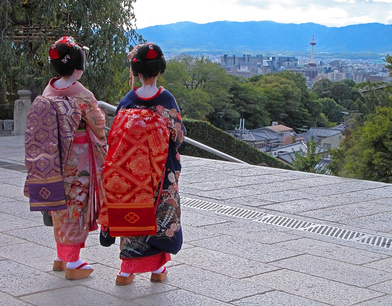
Booking.com increased lodgings in Japan listed on the site by 76% from 6,800 as of the end of 2015 to 12,000 in the end of May in 2017, and in Kyoto, its inventories skyrocketed from 450 as of the end of 2015 to 1,1000 in the end of May in 201. In accordance with the trend, customers for Kyoto on Booking.com were up around 50% year on year, and the OTA expects to send around 45% more customers to Kyoto by the end of 2017.
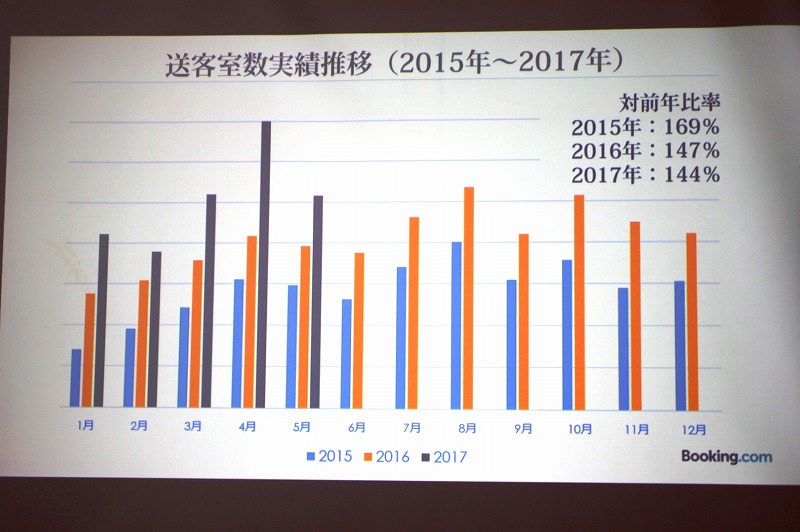
Out of the total bookings for Kyoto, books in foreign countries accounted for 85% in the period from June 2016 to May 2017, and including bookings by foreigners during traveling in Japan, the ratio is expected to ne higher than 85%. Hiroko Takagi, Booking.com Area Manager, West Japan, said, “Kyoto is by far the most popular destination in Japan for international visitors.”
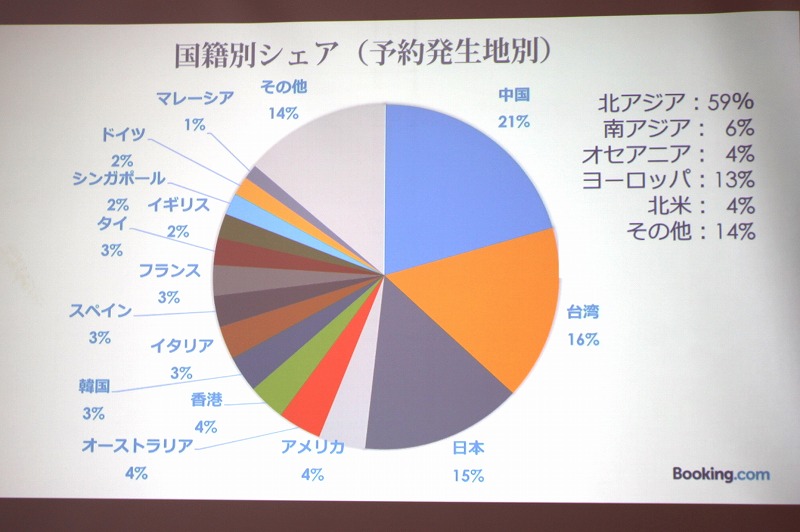
The average lead-time from booking to staying in Kyoto is 60 days before, and the booking trend has recently been polarized, according to Takagi. While the ratio of bookings in two or more months before staying was about 25%, the ratio of last-minute bookings in a week before staying also rose to about 25%. One of the reasons for the growth of last-minute bookings is that mobile bookings have recently been increasing particularly among travelers from North Asia, Takagi said.
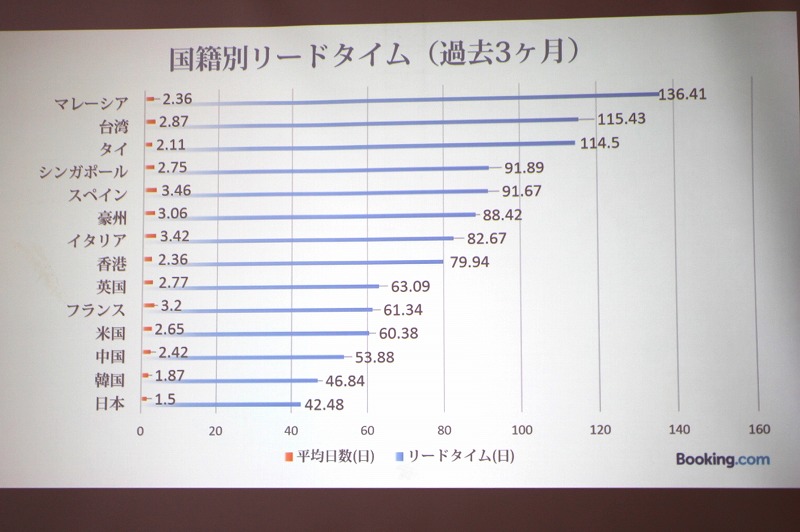
Another travel trend is that bookings not only for Kyoto but also including neighboring prefectures like Nara, Shiga or Wakayama have been increasing. Accordingly, length of stay in Kyoto City is shorter than before, according to the Booking.com analysis.
Interestingly, rooms available on Booking.com increased just by 23%, which was much lower than the growth rate of listed lodgings. Takagi explained that small-sized loadings with five or fewer rooms have overwhelmingly increased in Kyoto, and the ratio was 77% of the total. A main reason for that is that renovated old houses for vacation rental increased by 4.5 times in the past year. Takagi said that the diversification of lodgings in Kyoto has been seen in the past few years.
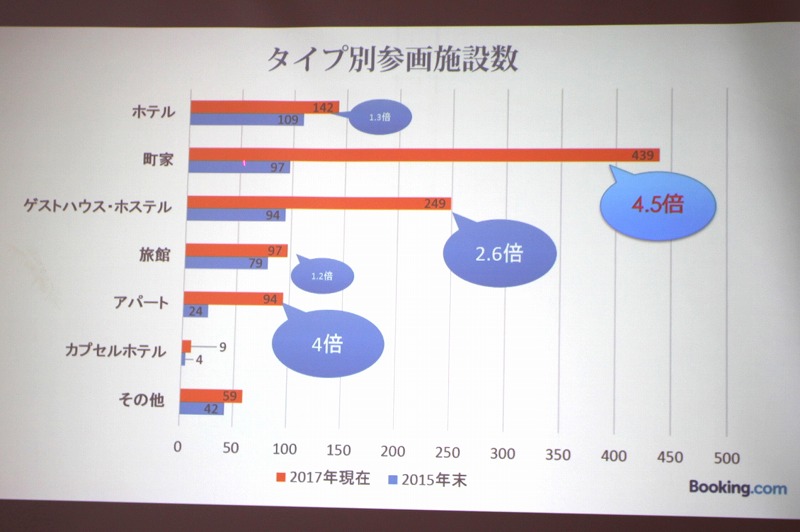
An increase in emerging small-sized lodgings has brought about price competition with conventional two- or three-stars hotels since half a year ago. Takagi said, “Prices should be set strategically on a daily basis, otherwise it is difficult to increase bookings.”




